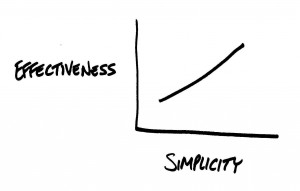Basket of Financial Deplorables
 It’s hard to not to riff on something political in the same week of that presidential candidates Hilary Clinton and Donald Trump squared off for their first debate. That’s exactly what Tony Isola did when he offered up his “financial products” version of Hilary Clinton’s uncomplimentary description of her opponent’s supporters (“basket of deplorables”).
It’s hard to not to riff on something political in the same week of that presidential candidates Hilary Clinton and Donald Trump squared off for their first debate. That’s exactly what Tony Isola did when he offered up his “financial products” version of Hilary Clinton’s uncomplimentary description of her opponent’s supporters (“basket of deplorables”).
Here is Tony’s list of products that are toxic to the retirement savings of our people and institutions:
- Equity-Indexed Annuities – How about an investment with limited upside but large potential for a substantial loss? Throw in a 10% sales charge and no dividend participation (50% of historic market returns) and we have the ingredients for a deplorable retirement scenario.
- Funds with 12b-1 Fees – Fund size and investment returns are negatively correlated. Investors are paying a fee to brokers designed to increase assets and reduce returns. Kind of like paying a restaurant to give you food poisoning!
- Proprietary Mutual Funds – This is cross selling at its most heinous. Never buy a mutual fund created by a broker’s employer- this is the ultimate perverse incentive.
- Non-Traded REITs – A false promise of safety combined with 10% upfront commissions, this is a true sucker’s bet. Just because something is not traded doesn’t mean it cannot go down in value. By the way, their publicly traded cousins have vastly outperformed this group over time, because of greater transparency and lower fees.
- Commodity Funds – High risk combined with low returns rarely ends well. These products specialize in something called ”Contango.” Investor translation: Nearer dated futures’ prices are lower than the longer dated ones, or more commonly known as buy high and sell low, rinse and repeat.
- Variable Annuities – These are often sold on the pretense of guaranteed income and tax-deferred growth. In reality, very few investors need this product fraught with complexity and egregious fees. These are often placed inappropriately in tax-sheltered accounts; investors do not need both a belt and suspenders.
- Front-Loaded Mutual Funds – Investors pay a premium of 5.75%, and an additional 1% a year in fund fees to purchase an investment that is almost guaranteed to underperform an unmanaged index fund costing .05%, annually. There is NEVER a reason to pay this fee.
- Over-Niched ETFs – Healthcare Shares Dermatology and Wound Care ETF and Pure Drone Economy Strategy funds are all that needs to be said. The prosecution rests its case.
- Hedge Funds – 2% annual fees combined with 20% of yearly profit makes it pretty hard for investors to bring home any type of meaningful positive returns. While there is a small minority of hedge funds that are worth the steep price, they are either closed or have account minimums that rule out everyone except for the Bill Gates’ crowd.
- Market Linked C.D.s – The ultimate vanilla investment has been hijacked by Wall Street. Unless you enjoy paying a 3% commission and having the possibility of losing principal due to early withdrawal, run away from anyone who approaches you with this nonsense. Purchasing a complicated structure that will underperform your Credit Union’s basic offering is a deplorable choice.
Vote for transparency, low fees, and an investment advisor who will look out for your best interests!
source: Tony Isola











